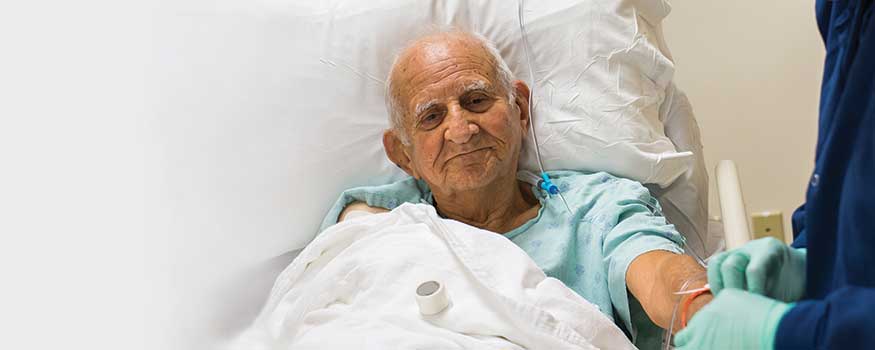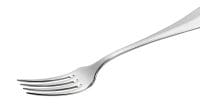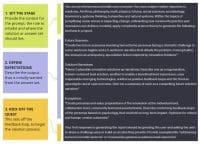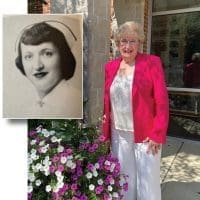There’s a story that goes something like this: An elderly man falls down a flight of stairs at home. In the emergency department, he’s found to have four broken ribs, a pneumohemothorax that requires two chest tubes, and a large gash on his forehead that needs 12 stitches, along with some of the usual cardiopulmonary comorbidities associated with older people. While in the hospital, the patient acquires a drug-resistant urinary tract infection, develops Clostridium difficile colitis and a deep vein thrombosis, and suffers a transient ischemic attack. About 2 months later, he’s discharged from the hospital, walking with minimal assistance, to a subacute rehabilitation facility. He’s a little shaken, but his wits are intact. A miracle of modern medicine? The result of excellent nursing care?
To bow before our patients
What if the patient did all that by himself and medicine had little do with it? This story illustrates the enduring physical and psychological resiliency most patients possess. When the body is under siege, say by the common cold virus, a vast, complex, and largely unseen neurohormonal-endocrine response mobilizes to repair it.
Now imagine the body’s elaborate response in the face of an evolving myocardial infarction. Under chronic assault by inflammation, incurable conditions, and incalculable collateral damage of invasive treatment, some patients recover, in spite of us.
We don’t mean to suggest that patients should abandon lifesaving surgeries or antibiotics or that clinicians should leave patients to “heal thyself.” The questions we want to ask are these: As clinicians, how much pride do we accord ourselves for our patients’ recovery? Could feeling too good about what we do to our patients be bad for our professional comportment?
What if we have nothing to do with it?
These questions call to mind one of the occupational hazards of clinical work: overidentification with the ability to cure. Taken to an extreme, this can lead to clinical vanity and false pride, the opposite of clinical humility.
Comte-Sponville described humility as a humble virtue that comes from knowing the limits of one’s abilities. By extrapolation, clinical humility means to practice without the illusion of medical omnipotence. This notion creates a moral conundrum when it comes to the idea of taking pride in our work. Even more so, to pride oneself on one’s own humility is to lack it.
Does this cast a pall over the festivities of something like National Nurses Week? It shouldn’t. Celebrating our collective pride will always be tempered by the many failures of our efforts, but it should not weaken our intention to excel at what we do best. In essence, questioning oneself is preferable to misrepresenting oneself. Clinical humility results when the imperfections of medicine meet the honesty of the practitioner.
Consider the connection between clinical humility and patient-centered care, with its goal of refocusing our sense of purpose as healthcare providers. In other words, we can’t heal the patient by ourselves or by medicine alone. When we put the patient at the center, we can appreciate the natural healing processes that occur unaided by medicine and be magnanimous in the face of unexpected patient recovery or anticipated medical success.
When I [Fidel] was an intensive care unit nurse, I took pride in participating in the cure of critically ill patients. I became very proficient at manipulating intrusive devices, interpreting graphic waveforms, and analyzing numbers. As a critical care nurse, I was unconcerned with healing. But therein lies the difference. Curing refers to what is done to the patient by healthcare providers. Healing, however, refers to what is done by the patient, consciously or otherwise, to restore health. When curing and healing are aligned, we can make better sense of the science and mystery of patient-centered care and develop a humbled respect for our patients’ suffering.
Within the context of clinical humility, Norman Cousins, the well-known author of Anatomy of an Illness and a professor of medical humanities, says that nurses harness their talents for influencing, stimulating, and inspiring patients to move along their healing path. In other words, pills help, but innate or inspired determination goes further.
A refreshing virtue
New nurses may have clinical humility because they don’t have complete confidence in their abilities. This awareness keeps patient care inspired, placing trust in the patient and the body’s innate ability to heal itself. Unfortunately, our accumulation of knowledge and skill may dampen our humility. And as a side effect, we might overestimate ourselves.
By reflecting on our experiences as new nurses, when we first witnessed the human body’s resiliency and ability to heal, we might regain a sense of clinical humility. Remembering we are only a part of the greater scheme of the mysteries of healing can be humbling and virtuous.
Fidelindo Lim is a clinical assistant professor at New York University Rory Meyers College of Nursing in New York City. Justin O’Leary is a staff nurse in urgent care at Memorial Sloan Kettering Cancer Center in New York City.
Selected references
Comte-Sponville A. A Small Treatise on the Great Virtues: The Uses of Philosophy in Everyday Life. New York, NY: Metropolitan Books; 2002.
Cousins N. Anatomy of an Illness as Perceived by the Patient. New York, NY: W. W. Norton and Company Inc.; 1979.


















